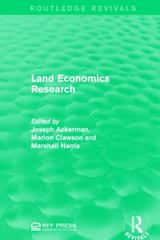Answered step by step
Verified Expert Solution
Question
1 Approved Answer
New Poliriea Economy, Vo_ 10. No. 3. September 2005 The State-augmenting Effects of Globalisation LINDA WEISS Global integration raises many questions about the state
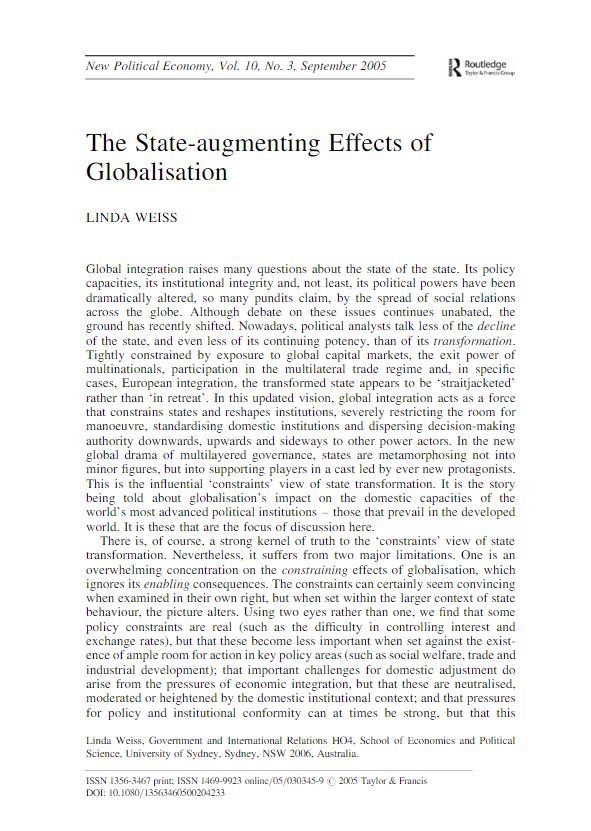
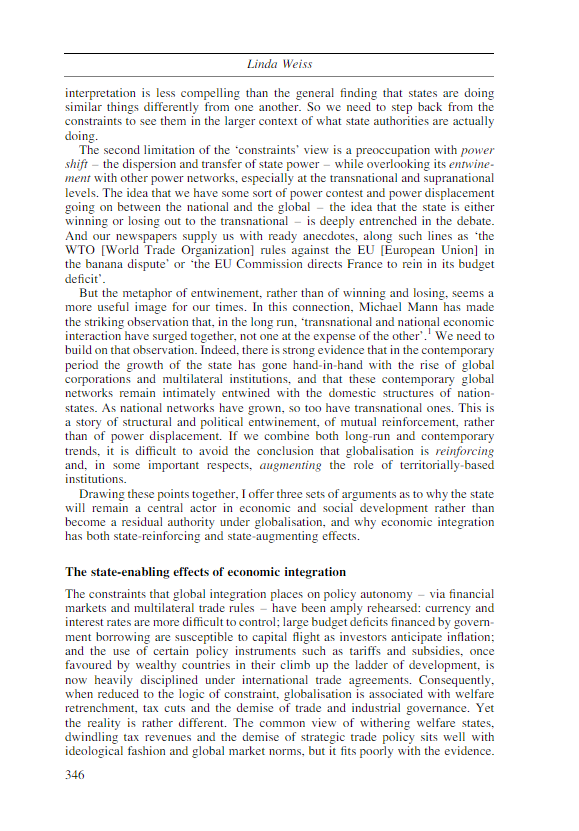
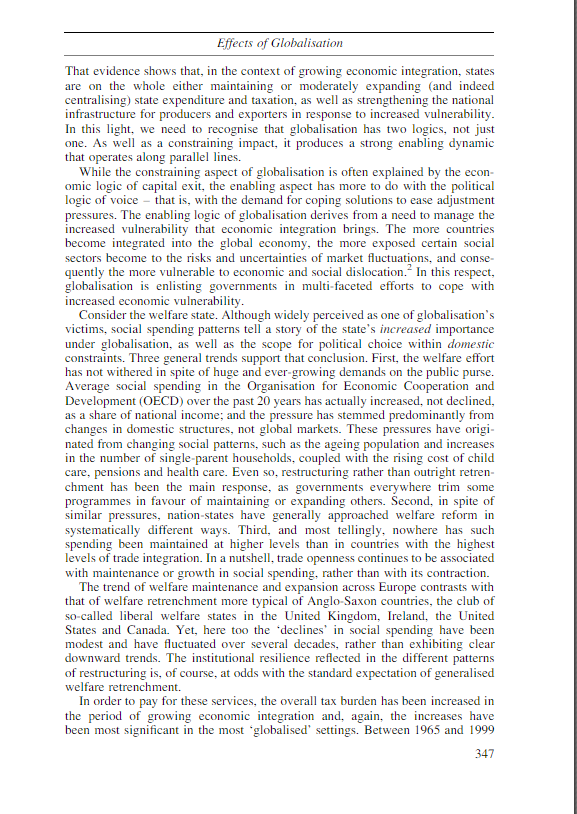
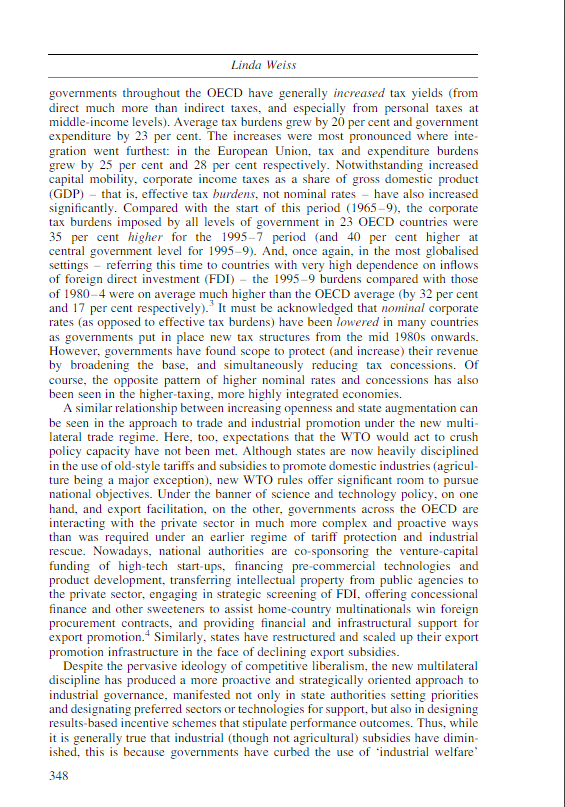
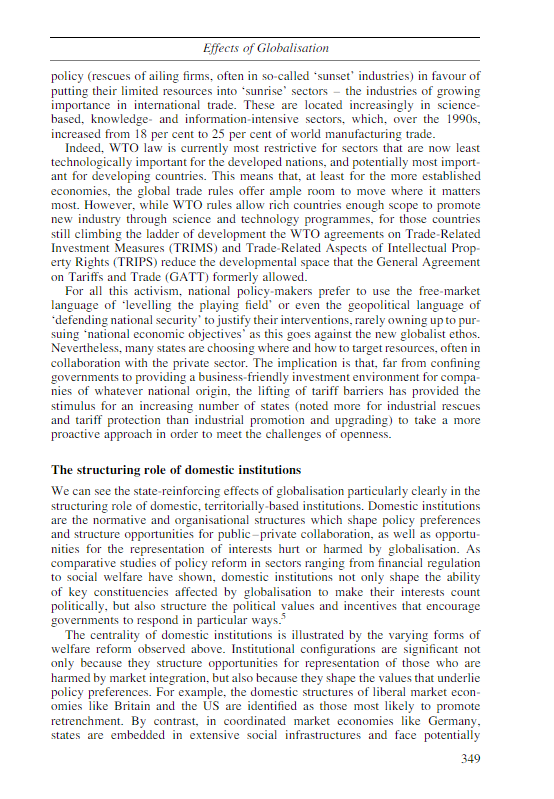
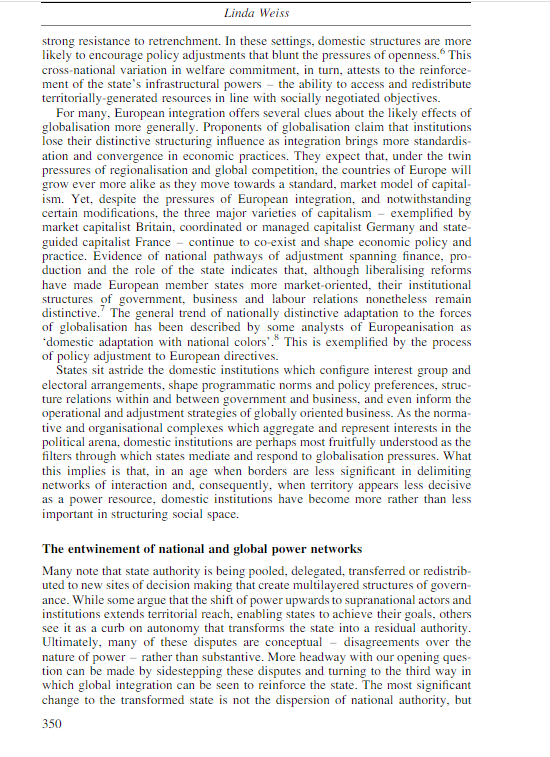
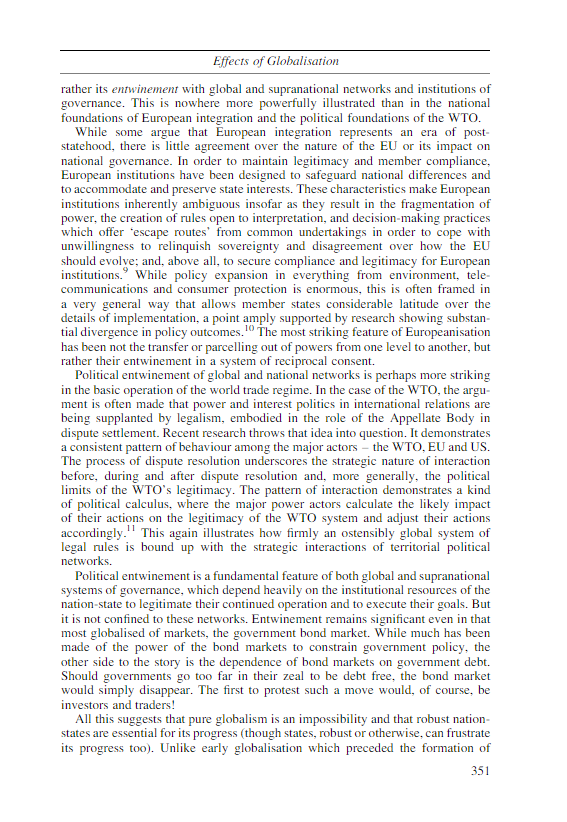
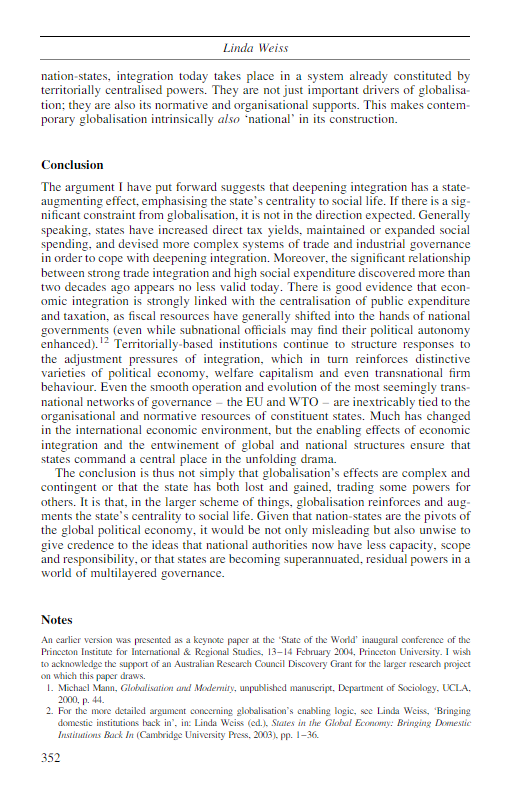
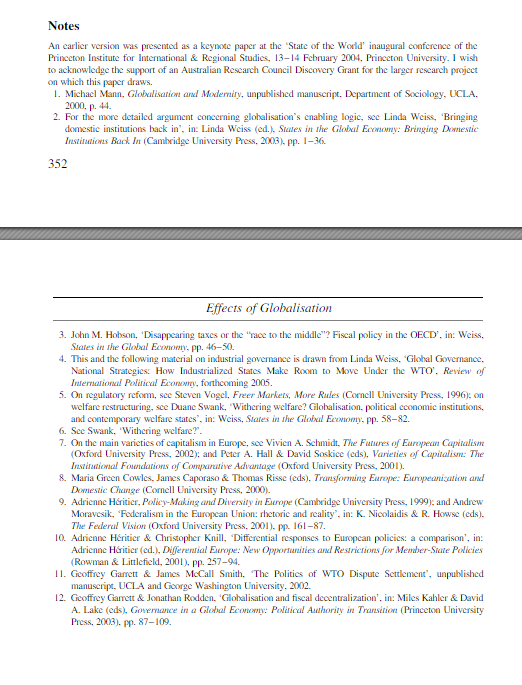
New Poliriea\ Economy, Vo\_ 10. No. 3. September 2005 The State-augmenting Effects of Globalisation LINDA WEISS Global integration raises many questions about the state of the state. Its policy capacities, its institutional integrity and. not least, its political powers have been dramatically altered. so many pundits claim, hy the spread of social relations across the globe. Although debate on these issues continues unabated, the ground has recently shifted. Nowadays. political analysts talk less of the decline of the state, and even less of its continuing potency, than of its 'ransformarion_ Tightly constrained by exposure to global capital markets. the exit power of multinationals. participation in the multilateral trade regime and, in specific cases- European integration. the transformed state appears to be straitjacketed' rather than in retreat'. In this updated vision, global integration acts as a force that constrains states and reshapes institutions. scverely restricting the room for manoeuvre. standardising domestic institutions and dispersing decisionmaking authority downwards. upwards and sideways to other power actors. In the new global drama of multilayered governance. states are metamorphosing not into minor figures, hut into supporting players in a cast led by ever new protagonists. This is the influential 'constraints' view of state transformation. It is the story being told about globalisation's impact on the domestic capacities of the world's most advanced political institutions those that prevail in the developed world. It is these that are the focus of discussion here. There is. of course. a strong kernel of truth to the 'constraints' view of state transformation. Nevertheless, it suffers from two major limitations. One is an overwhelming concentration on the constraining effects of globalisation, which ignores its enabling consequences. The constraints can certainly seem convincing when examined in their own right. hut when set within the larger context of state behaviour. the picture alters Using two eyes rather than one, we find that some policy constraints are real (such as the difficulty in controlling interest and exchange rates), hut that these become less important when set against the exist ence of ample room for action in key policy areas (such as social welfare. trade and industrial development): that important challenges for domestic adjustment do arise from the pressures of economic integration. hut that these are neutralised, moderated or heightened hy the domestic institutional context; and that pressures for policy and institutional conformity can at times be strong, hut that this nt H04. of YWitical of NSW ISSN ISSN 20-6 &
Step by Step Solution
There are 3 Steps involved in it
Step: 1

Get Instant Access to Expert-Tailored Solutions
See step-by-step solutions with expert insights and AI powered tools for academic success
Step: 2

Step: 3

Ace Your Homework with AI
Get the answers you need in no time with our AI-driven, step-by-step assistance
Get Started


